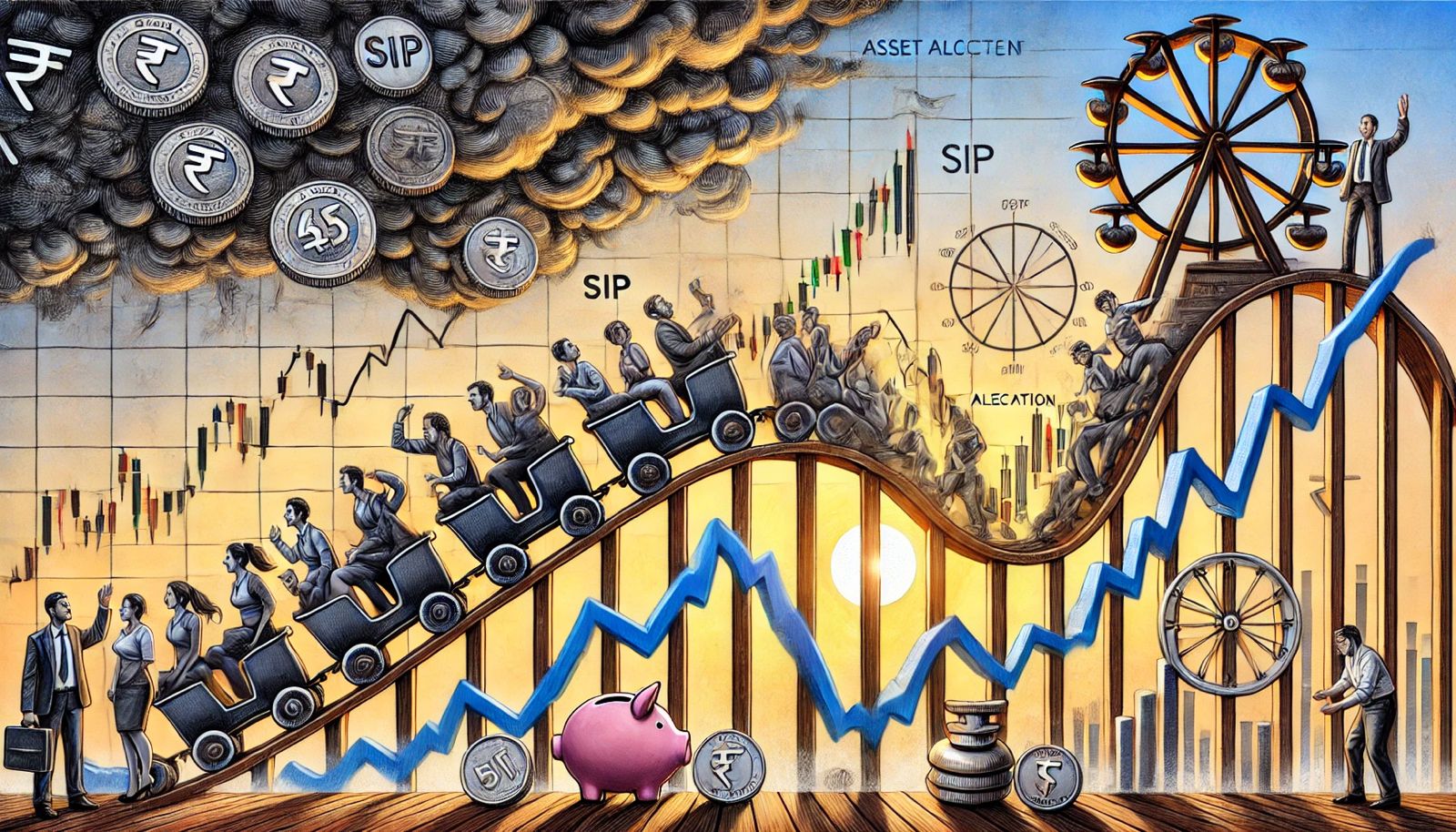


Indian stock markets have witnessed significant volatility over the past two months. The Nifty 50 index reached an all-time high of 26,216 on September 26, only to decline to 23,349.9 on November 21—an almost 11% drop in under two months. As of the latest update, the index has rebounded to 24,677.8, reflecting a 6% recovery from its recent lows. The fluctuations have been even more pronounced in individual stocks, contributing to heightened anxiety among investors.
While it is often said that "Volatility is the long-term investor’s best friend," many investors fail to adopt behaviours that capitalize on this principle. In fact, their reactions during such turbulent phases often undermine their portfolio’s potential to generate long-term wealth.
Here are some common mistakes investors should avoid to protect their portfolios from the adverse effects of volatility:
1. Stopping or Pausing SIPs
Discontinuing or temporarily pausing Systematic Investment Plans (SIPs) during market downturns is one of the most detrimental actions an investor can take. SIPs are built on the principle of rupee cost averaging, which only works effectively when contributions are made consistently, regardless of market conditions. Lower market levels allow investors to acquire more units at reduced NAVs, ultimately lowering the average cost of investment over time.
2. Panic Selling
Market downturns often trigger fear among investors, leading to premature redemption of their investments. If an investor cannot tolerate market fluctuations or temporary declines in portfolio value, they should reconsider investing in equity markets or mutual funds. Historical evidence demonstrates that while markets do experience corrections, they tend to recover and achieve new highs over the long term.
3. Waiting to Invest
Some investors keep funds on standby, intending to invest during market dips. However, when markets fall, they often hesitate, waiting for prices to drop further. Consider this: while the Nifty currently trades at 24,700+—above its recent lows—it remains cheaper than its previous peak. Waiting indefinitely can result in missed opportunities, as market highs are consistently surpassed over time.
4. Checking Portfolios Daily
Frequent portfolio monitoring, especially during downturns, is counterproductive. Constant checking is akin to inspecting ice cream every hour to see if it has frozen. It does not accelerate recovery but can significantly increase stress and anxiety. Trust the process and allow time for the portfolio to perform.
5. Following the Herd
Investors often succumb to FOMO (Fear of Missing Out), chasing stocks or funds that appear popular at the moment. By the time these investments are made, prices are often inflated, leading to potential losses. Avoid herd mentality and stick to your own research and strategy.
6. Overconcentrating Investments
Market corrections might tempt investors to allocate all their available funds to equities or equity mutual funds, given the lower valuations. However, it is critical to maintain diversification and adhere to your planned asset allocation, aligned with your risk profile. Never place all your resources in a single asset class.
7. Trusting Rumours and Predictions
Volatile markets provide fertile ground for rumours and speculative forecasts. At a Nifty level of 26,200+, so-called experts predicted levels of 30,000 and even 50,000. When the index fell, the same experts warned of bottoms at 20,000 or 18,000. The reality is simple: no one can accurately predict market movements.
Key Takeaways
During periods of volatility, patience and discipline are crucial. Stick to a structured investment strategy, including consistent SIP contributions and balanced asset allocation. Avoid being swayed by fear, greed, or external noise, and trust the plan you have established for achieving your financial goals.
Remember, volatility is a natural aspect of market behaviour, and when approached wisely, it can work in your favour to build long-term wealth.
D/501, Nisarg Heaven CHS, Mahavir Nagar,
behind MCA club, Kandivali West, Mumbai,
Maharashtra, 400067, India
Risk Factors – Investments in Mutual Funds are subject to Market Risks. Read all scheme related documents carefully before investing. Mutual Fund Schemes do not assure or guarantee any returns. Past performances of any Mutual Fund Scheme may or may not be sustained in future. There is no guarantee that the investment objective of any suggested scheme shall be achieved. All existing and prospective investors are advised to check and evaluate the Exit loads and other cost structure (TER) applicable at the time of making the investment before finalizing on any investment decision for Mutual Funds schemes. We deal in Regular Plans only for Mutual Fund Schemes and earn a Trailing Commission on client investments. Disclosure For Commission earnings is made to clients at the time of investments.
AMFI Registered Mutual Fund Distributor – ARN-46047 | Date of initial registration – 23-Nov-2008 | Current validity of ARN – 26-May-2027
Important Links | Disclaimer | Disclosure | Privacy Policy | SID/SAI/KIM | Code of Conduct | SEBI Circulars | AMFI Risk Factors